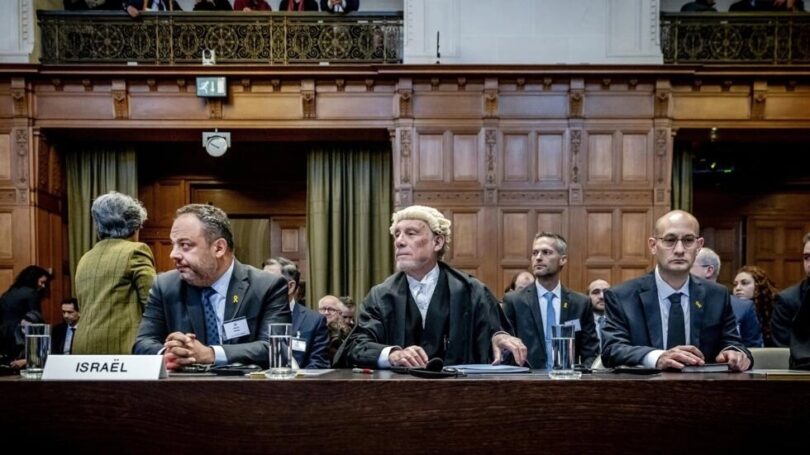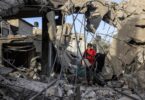THE HAGUE (AFP): The UN’s top court said it would hand down its landmark ruling on Friday in the case against Israel over alleged genocide in Gaza, a verdict likely to be watched closely around the world.
The International Court of Justice in The Hague could potentially order Israel to stop its military campaign in Gaza, sparked by the unprecedented Hamas attack on October 7.
South Africa has hauled Israel before the court, alleging it stands in breach of the UN’s Genocide Convention, signed in 1948 as the world’s response to the Holocaust.
Pretoria wants the ICJ to issue so-called “provisional measures”, emergency orders to protect Palestinians in Gaza from potential breaches of the convention.
Orders from the ICJ, which rules in disputes between countries, are legally binding and cannot be appealed.
However, the court has little power to enforce its verdicts — for example it ordered Russia to stop its invasion of Ukraine one month after it began, to no avail.
Israel’s Prime Minister Benjamin Netanyahu has already hinted he would not feel bound by any ICJ order.
“No one will stop us — not The Hague, not the Axis of Evil and no one else,” he said on January 14, referring to the Iran-aligned “axis of resistance” groups in Lebanon, Syria, Iraq and Yemen.
The court is only ruling on South Africa’s plea for emergency measures, not on the fundamental issue of whether Israel could be committing genocide — that will take years.
An ICJ ruling against Israel would increase political pressure on the country, with many speculating it could serve as a pretext for sanctions.
The war in Gaza erupted when Hamas launched its unprecedented October 7 attack, which resulted in about 1,140 people killed in Israel, mostly civilians, according to an AFP tally based on official figures.
More than 25,700 Palestinians, around 70 percent of them women, young children and adolescents, have been killed in the Gaza Strip in Israeli bombardments and ground offensive since October 7, according to the Hamas government’s Ministry of Health.
‘Genocidal acts’
South Africa can take Israel to the ICJ because both countries have signed the Genocide Convention and disputes over the text have to be settled at the court.
Testifying in the grand halls of the Peace Palace, a world away from the suffering in Gaza and Israel, Pretoria acknowledged the “particular weight of responsibility” of accusing Israel of genocide.
But lawyers for South Africa alleged that Israel’s bombing campaign aimed at the “destruction of Palestinian life” and had pushed the people “to the brink of famine.”
“Genocides are never declared in advance, but this court has the benefit of the past 13 weeks of evidence that shows incontrovertibly a pattern of conduct and related intention that justifies a plausible claim of genocidal acts,” said lawyer Adila Hassim.
Israel countered that it was not seeking to destroy the Palestinian people and dismissed the South African case as a “profoundly distorted factual and legal picture.”
“Israel is in a war of defence against Hamas, not against the Palestinian people,” said top lawyer Tal Becker.
“In these circumstances, there can hardly be a charge more false and more malevolent than the allegation against Israel of genocide,” concluded Becker.
The verdict is seen as a key test for international justice and will be keenly scrutinised around the world, with allies lining up already on both sides.
The United States has already rejected South Africa’s case, and Germany has said it will intervene as a third party on Israel’s side when the court hears the broader genocide case.
Berlin’s statement drew a stinging rebuke from former colony Namibia, which described Pretoria’s case as a “morally upright indictment.”
Namibian President Hage Geingob attacked “Germany’s inability to draw lessons from its horrific history.”







